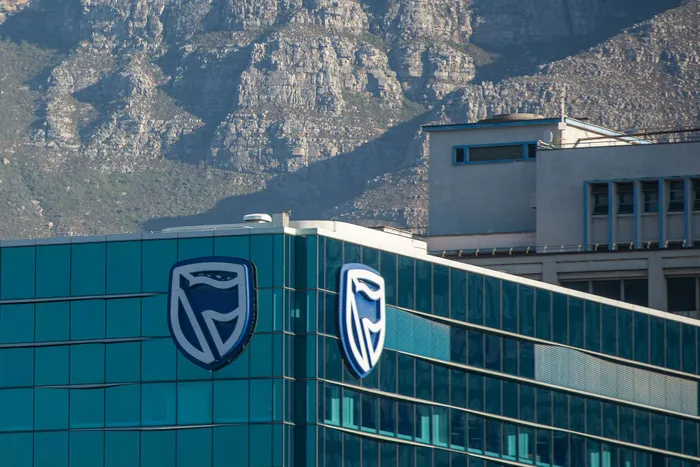D-day for Independent Media in its bid to stop Standard Bank’s ‘unjust’ closure

Standard Bank last month indicated its intention to close banking accounts of Sekunjalo-related companies including Independent Media. Picture: Armand Hough / African News Agency (ANA)
In an urgent bid to save the livelihoods of its employees and prevent a looming catastrophe that could lead to a demise of some of the country’s oldest newspapers in the Independent Media group, the black-owned Sekunjalo group will haul Standard Bank to the Equality Court tomorrow to prevent the closure of its accounts.
Standard Bank last month indicated its intention to close banking accounts of Sekunjalo-related companies including Independent Media, a decision that could be a devastating blow to more than 30 companies and the livelihoods of over 1000 employees under Sekunjalo, including Independent Media if the latest court bid fails.
In turning to the Equality Court, the Sekunjalo Group and its subsidiary companies will seek an interdict against the unjust closure of their accounts, arguing that the banks were racially discriminating against them and violating their right to trade, and that closing the media outlets has a direct impact on media freedom.
This after the bank served the company with notice that its accounts would be shut following a judgment by the Competition Appeal Court (CAC) in its favour, which would have been immediate.
However, because Sekunjalo launched legal proceedings at the Constitutional Court, Standard Bank deferred its actions until September 15, the date of the original Competition Tribunal matter. The Competition Commission is expected to have finished its investigations into the claims of collusion the group brought against the banks by this date.
The banks cited reputational risk as among the reasons for its intended closure of these banks accounts.
While the Tribunal found that having received and perused all the documents before it, there was no evidence of any wrongdoing by any of the Sekunjalo Group of Companies, following a favourable judgement by the CAC, Standard Bank noted its intention to proceed with closing the company’s accounts.
The CAC found that the Tribunal had erred because Sekunjalo had not, it said, provided the Tribunal with evidence of collusion to close its group accounts.
Sekunjalo chairperson Dr Iqbal Survé believes these attempts by the bank were political. Survé reiterated that the commercial banks were fighting a proxy political war targeting his businesses, especially Independent Media because of exposing the malfeasance in President Cyril Ramaphosa’s administration.
Some of these newspapers had exposed corruption at Eskom and the looting of money meant for PPE at the height of the Covid-19 pandemic.
The group was also the first to report on Ramaphosa’s Phala Phala farm scandal last year.
“They want nobody to expose this stuff ... This is no different from what is happening in South America. There will be no jobs, and they don’t care. All they care about is how much money they can make (for themselves).”
“Without bank accounts, the companies cannot receive advertising, subscriptions, they cannot make payments, they can do absolutely nothing.”
The banks’ absolute power has once again brought into sharp focus the ANC-led government’s failure to deliver the long promised state bank and reform the country’s banking sector, which was still dominated by only four banks.
Commenting on the ANC’s failure to implement its conference resolutions, political analyst Professor Sipho Seepe told the Sunday Independent that the failure to implement conference resolutions was deliberate and it was the ANC president of the party who set the agenda.
ATM leader Vuyolwethu Zungula accused senior leaders of not ensuring that banks did not abuse their dominance because they owned shares in those banks.
“It’s well known that some of them own shares in the commercial banks and they wouldn’t want to create competition for themselves in the form of a state bank. Commercial banks are hungry capitalists which impoverish the poor and marginalise communities. Without a state bank, black people are poorer and more vulnerable,” Zungula said.
Independent political analyst and senior lecturer at the University of Limpopo, Dr Metji Makgoba, said the ruling party was in bed with private banks and the ANC would not want to interfere with how these banks dominated the financial sector.
“The creation of a state bank is against the neo-liberal capitalist ethos of the ruling party that favours corporate domination over state intervention. The existence of a state bank will disrupt the relationship between the ruling party and the ruling elite in ways that would threaten the hegemony of the ANC, especially in the lead-up to the upcoming elections. The ANC has been comfortable to have a symbiotic relationship with South African banks that undermine the role of the state in protecting citizens and the marginalised. This means black people will continue to be harassed and abused by these private banks that have been looting the poor with reckless abandon. These banks and their structure of fees and billings are the primers of poverty and inequality because they insist on making profits even when there are no production costs,” Makgoba said.
Cape Times